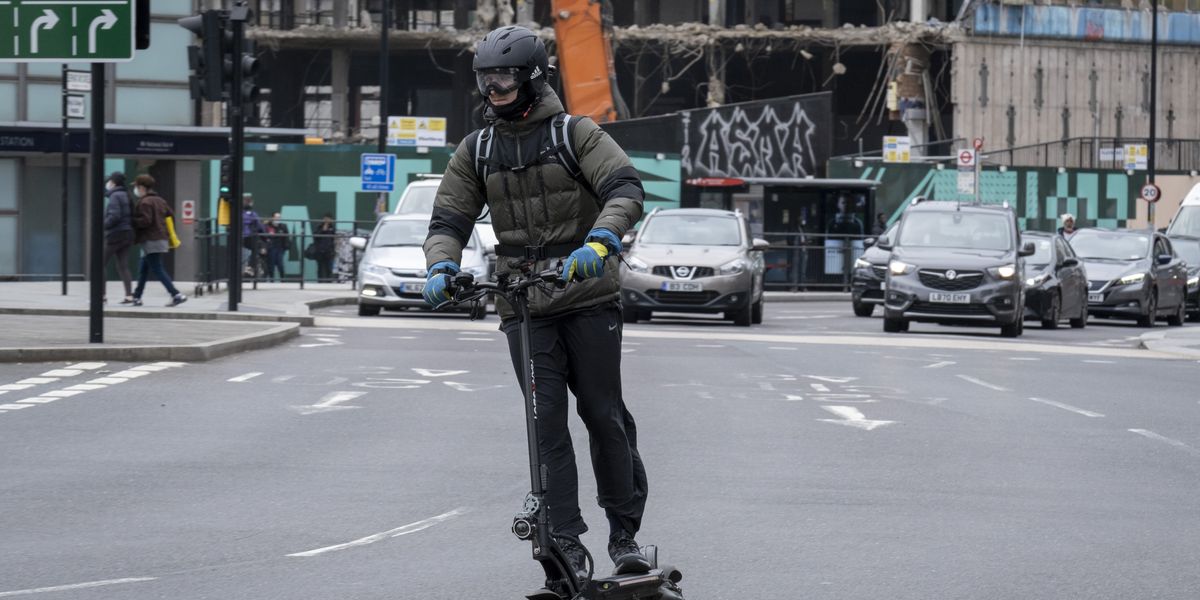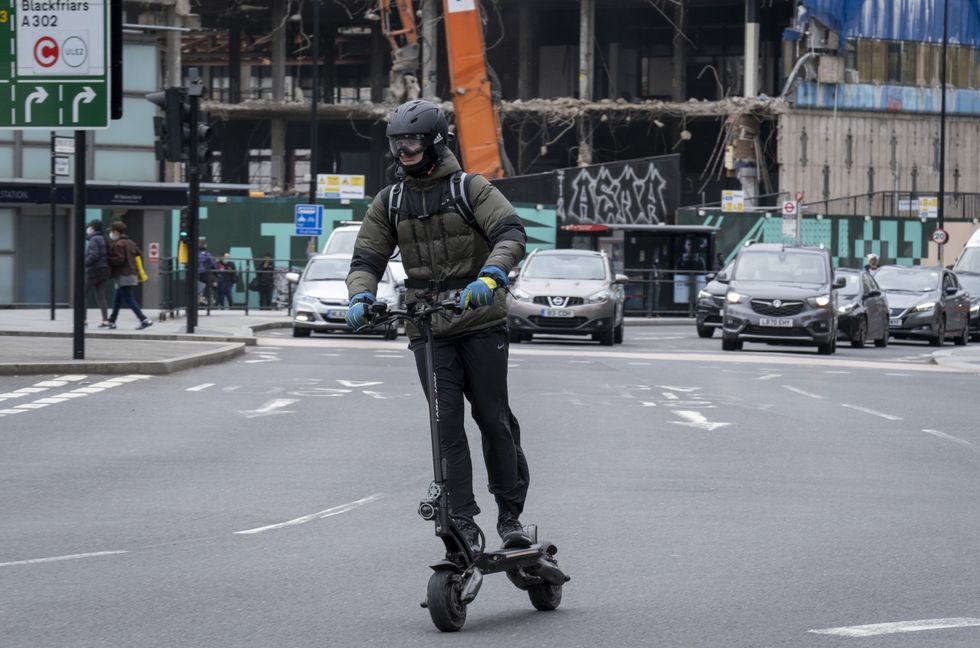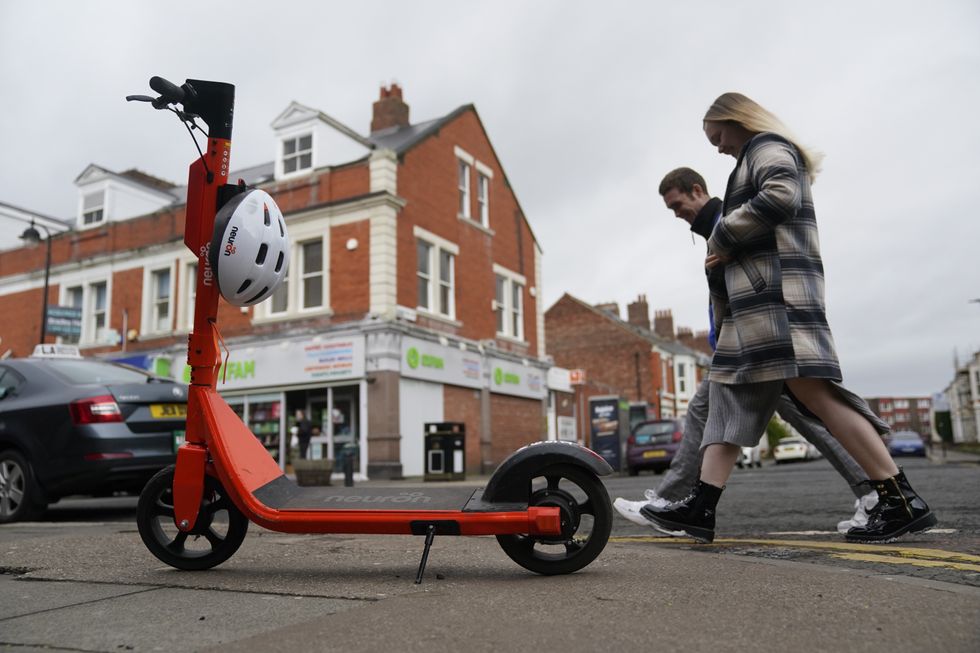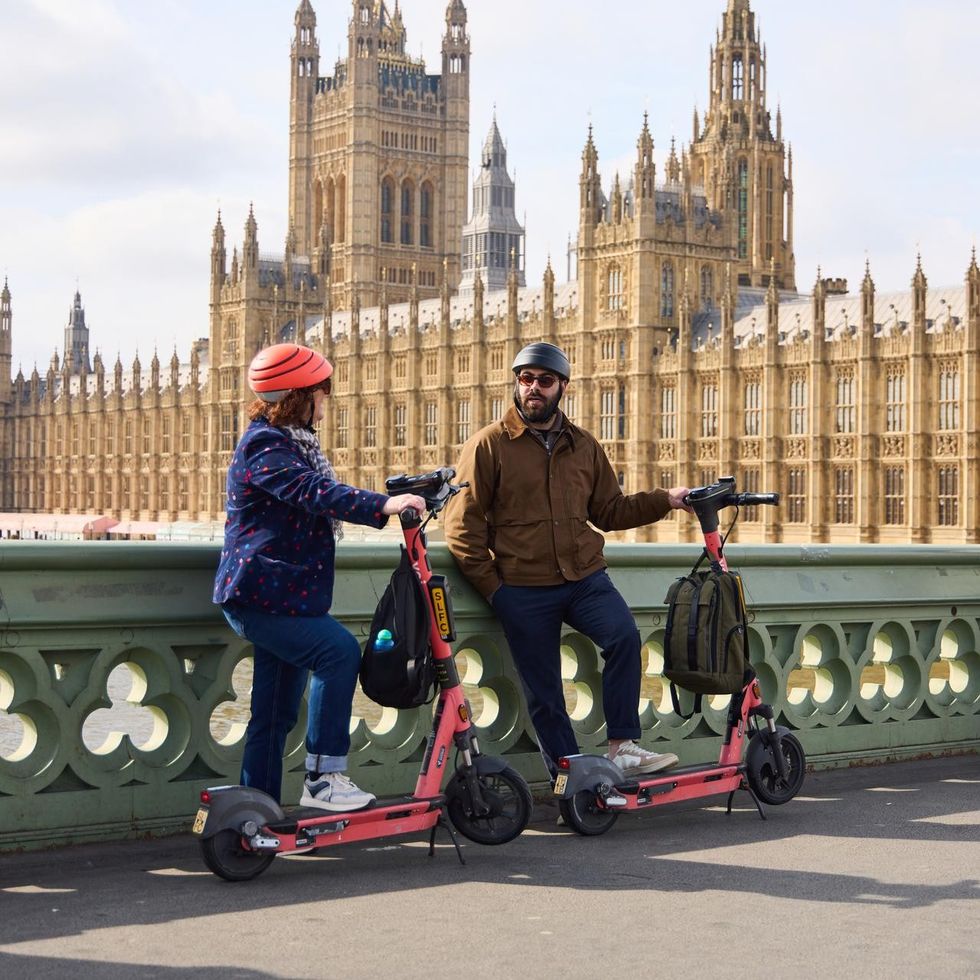



E-scooters could be forced to have licence plates and face tougher requirements for ownership under new proposals as Britons urgently call for stricter laws.
It comes as the Government looks to develop new rules for the electric scooters after reports of growing frustration by pedestrians and road users have prompted action.
The proposed measures represent a significant shift in how the electric scooters are managed throughout the UK, with current rules restricting their use to trial areas or private land.
Now, Government sources have indicated the crackdown aims to address mounting concerns about modified scooters capable of reaching 70mph and their increasing use in criminal activities.
 GETTY |
GETTY |
Government sources have indicated intentions to tighten up e-scooter rules and introduce new requirements
The regulations would primarily affect privately-owned devices rather than rental schemes, which already require users to hold driving licences and provide proof of age.
The planned restrictions, which are currently being mulled over by the Government, include establishing a minimum age of 14 for users. This would help prevent pupils from using the devices for school journeys.
Manufacturers would face requirements to cap maximum speeds at 12.5mph for the scooters, making it significantly lower than the capabilities of many current models.
A Government source told GB News: "Successive Conservative Governments dragged their feet while a black market of e-scooters has been allowed to take over our streets.
"E-scooters can be a great way to get around, but they must be properly regulated, safe for pedestrians as well as riders, and we must ensure they cannot clutter up our streets."
 PA |
PA |
E-scooters can only be used in trial areas or on private land
Officials are also examining whether to introduce compulsory rider training programmes, similar to driving licence requirements for motorists.
The source added: "This Government will act where the Tories failed to do so - legislating to crack down on illegal use to make our streets safe and accessible for everyone."
Insurance mandates remain under review, though Government sources have expressed concerns about potentially prohibitive premium costs.
The registration system would enable police to identify and better target riders involved in dangerous behaviour or criminal activities.
Current legislation classifies e-scooters as motor vehicles, making their use on public highways illegal without proper licensing and insurance.
Despite these restrictions, it is estimated that one million privately owned devices are operating on UK roads, with law enforcement often unable to pursue violations as swiftly as they may like.
But recent Home Office changes have made it easier for police to apprehend rulebreakers, with police now given the power to seize and destroy illegal e-scooters within 48 hours.
Minister for Crime and Policing Dame Diana Johnson said: "Anti-social and reckless driving brings misery to communities across the country, from dangerous street racing to off-road bikes tearing through local parks.
"By enabling police to seize and dispose of these vehicles within just 48 hours, we’re giving our officers the tools they need to deliver immediate results and providing communities with the swift justice they deserve."
 TFL | Thousands of e-scooters have been used in criminal activities
TFL | Thousands of e-scooters have been used in criminal activities
Vulnerable pedestrians, particularly elderly and visually impaired individuals, have been impacted the most by e-scooter riders, with reports detailing cases of them being struck by riders using pavements illegally or being unable to use the pavement due to vehicles blocking the path.
Prominent road traffic lawyer Nick Freeman, known as Mr Loophole, told the Daily Mail: "The delay in bringing in proper legislation is effectively giving the green light for e-scooters to be used to commit all forms of criminal activity.
"They're stealth-like and there are no registration plates, so the police have very little chance of apprehending anyone. They're a menace."
He warned that while e-scooters fall under the Road Traffic Act 1988, "there are no registration plates, so the police have very little chance of apprehending anyone", adding that "they're a menace".
According to sources, when the Government comes back from recess in September, the Department for Transport intends to consult on the proposed changes with the hope of new legislation to follow.
